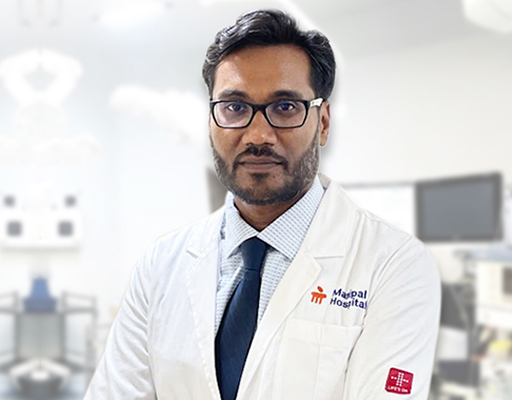-

According to studies, 27% of men and 3% of women can develop inguinal hernia in their lives. While not highly complicated, this medical condition needs to be treated to avoid pain and discomfort.
Although there are several types of inguinal hernia treatments available, one of the most common treatments available is surgery.
The surgery is usually conducted by a hernia specialist. If you are trying to learn about the condition and the available treatments for it, you are in the right place.
In this blog, we discuss everything about inguinal hernia treatments and what to expect at home after the treatment.
What Is Inguinal Hernia?
In simple words, an inguinal hernia is a swelling or bulge in the groin area of a person where the abdomen and thigh meet. The bulge happens when the contents of the abdominal cavity push outward through the inguinal canal. This causes the groin region to swell, resulting in pain.
Some of the common symptoms of inguinal hernia are:
-
Swell or bulge that you can feel or see in the groin region.
-
Dragging sensation around the testicles in men.
-
Growing pain when lifting, straining, or standing for a long time.
-
A feeling of pressure and pain around the swell.
One of the crucial factors to keep in mind about inguinal hernias is that they do not heal on their own.
You need to resort to a medical procedure like surgery to make it go away. They are not harmful to the person in any way on their own.
However, severe pain or discomfort needs to be treated with surgery before it complicates the condition further.
How Can You Treat Inguinal Hernia
The best inguinal hernia treatment is surgery. Qualified medical practitioners with the expertise to perform the surgery can be found in most specialty hospitals. One such hospital is MH Surgery Clinic, where you have the best hernia surgeon in Bangalore.
Your medical practitioner inspects your health and medical conditions to suggest the best course of action.
The usual medical procedure suggested by doctors for an inguinal hernia that causes severe symptoms, extreme pain, or serious complications is surgery.
Apart from surgery, if the situation is not severe, the following treatments are suggested:
-
Wearing a binder to reduce pain or discomfort.
-
Workout to strengthen the abdominal areas.
-
Avoid eating foods that cause inflammation.
-
Maintaining a proper weight and fitness.
However, these are temporary. If the situation worsens, always resort to surgery.
5 Encouraging Facts About Hernia
Although hernias are common, not many are aware of their nature and complications. Here are the top 5 facts about a hernia that you may not have heard yet.
After reading this, you will be relieved if you are suffering from a hernia.
1. Hernias are more common than many people think.
That’s right. Hernias are everywhere, and if you are a person suffering from Hernia, you are not alone.
There are different types of hernias in the world. A few of them are:
-
Inguinal hernia
-
Incisional hernia
-
Femoral hernia
-
Umbilical hernia
-
Hiatal hernia
The most common area that gets affected by hernia is the groin. Another area where hernia is common is the belly button.
2. If you don’t ignore it, hernias are not life-threatening.
Under normal circumstances, hernias are not very complex or a threat to a person’s life. However, it does not mean that they don’t have the potential to cause serious consequences.
Most of the time, hernias start very small. You won’t even know they are there. There won’t be any discomfort or symptoms for a long time.
Over a period of time, it can cause pain or discomfort that may worsen with time. And if you continue to ignore it, it can lead to further issues.
Therefore, treating hernia on time is crucial.
3. It is possible to prevent certain hernias.
Yes, that’s right. If you take care of your body, you can reduce the chances of some hernias occurring. Hernias happen due to the failure of structural tissues, leading to other tissues to push outward.
While there are several reasons for this structural failure, you can control many of them.
Some of the reasons for the hernia are:
-
Professions where heavy lifting or straining is common.
-
Being obese and overweight.
-
Multiple pregnancies.
-
Chronic constipation.
- The habit of smoking.
4. Not all hernias require surgery.
The best way to treat a hernia is to undergo surgery. That does not mean it is the only way or you need it immediately.
After assessing your condition, the doctor makes a lot of recommendations based on the severity of the hernia, its location, the symptoms, and your health conditions.
Doctors may choose to observe small and mild hernias if the symptoms are not severe or if there are no visible discomforts in the patient.
Only when the situation worsens may the doctor suggest surgical interventions. In such cases, you can search for a hernia specialist in Bangalore or wherever you are at.
5. Hernia surgeries are often low-risk.
This is the most encouraging fact about hernia surgeries. They happen all the time in hospitals, and they often carry very low risk.
This is so because most doctors use minimally invasive surgical procedures like robot-assisted surgeries for hernia. A robotic hernia surgery is performed by a doctor with the help of robotic arms.
At MH Surgery Clinic, the surgery is performed by the best hernia surgeon in Bangalore using special surgical equipment and a camera after making tiny incisions.
As robotic surgeries are accurate and precise, the risks associated with such treatments are very few.
What to Expect at Home During Recovery After Surgery
Surgery is the best medical intervention for patients suffering from Inguinal hernia. The surgery takes a few weeks for complete recovery.
Here is what you can expect during the recovery at home.
Caring the wounds
To care for the wounds, you will be instructed to avoid baths, pools, and hot tubs after the surgery. Exposing the surgery area to water increases the chances of infections and other complications.
However, you can start bathing after 12 hours of surgery. But you need to be extra careful not to damage the area of incisions.
Maintaining diet
Although you are not required to follow any type of diet during the recovery period, you may experience changes in your bowel movements.
This could be due to the medications you take.
Appetite
You may experience a poor appetite after undergoing the surgical procedure for inguinal surgery. It may last from 1 to 2 weeks.
In case you experience constant nausea or trouble consuming fluids, it could be a sign to watch out for.
Contact your doctor when such things happen.
Pain
Like with any other surgery, you will experience some pain or discomfort with hernia surgery as well. One good news is that with minimally invasive hernia surgery, the pain is comparatively less, thanks to small incisions.
However, if you experience a lot of pain and discomfort at the surgery site, contact your surgeon and seek medical help.
Activities
You may not always be guided by the doctor to restrict activities while you are at home. Use your pain as an indicator as to what you can do and not do.
If it hurts to walk a lot, do not walk. If you feel pain after sitting for a long time, do not sit for long hours.
Consult your doctor if there is unceasing pain after engaging in any activity.
Bowel movements
You may experience your first bowel movement anytime after a day. It is common to experience a lot of gas or have diarrhea. The chances of constipation are also high.
All these may be caused by the medications you take after the surgery.
You must contact your doctor if you experience severe pain or other discomfort during bowel movements.
Conclusion
As you have seen above, inguinal hernia is not very uncommon. Although it has symptoms like umbilical hernia symptoms, the region where the pain occurs is different. This will tell you what type of hernia you have.
And you need to consult a medical practitioner who can help you with the same. Although there are many doctors who can help you with hernia, seeking expert medical help from specialists is advised.
If you are looking for a hernia specialist in Bangalore, MH Surgery Clinic is the best. Speak to our patient service team to learn more about the inguinal hernia treatment plans and services we offer.
Title: 5 Inguinal Hernia Treatments Facts and What to Expect During Recovery | MH Surgery
Description: Combatting inguinal hernia? Here is a detailed look at inguinal hernia treatments and your recovery journey. Take the first step toward a hernia-free life.

Author: DR. MANJUNATH HARIDAS (MD FACS FICS)
Dr. Manjunath Haridas is one of the leading surgeons for Gastrointestinal Sciences in Whitefield, Bangalore. His area of expertise includes Gastrointestinal Surgery - Colon Rectum, Foregut Advanced Laparoscopic Surgery, and Minimally invasive surgery. He is Honored by the American Board of Certification, fellow Of the American College of Surgeons, SAGES membership and more.
-

